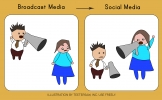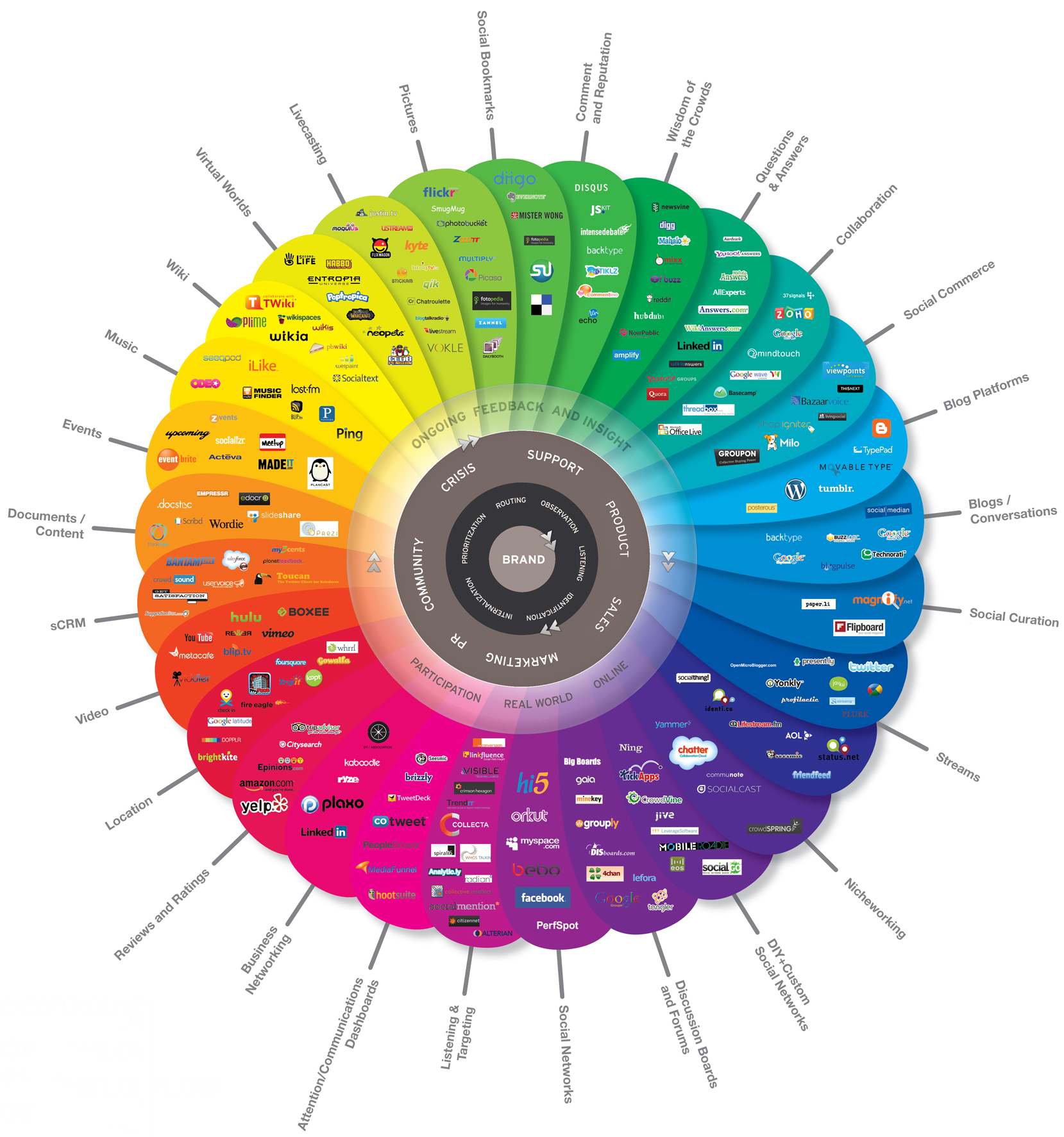
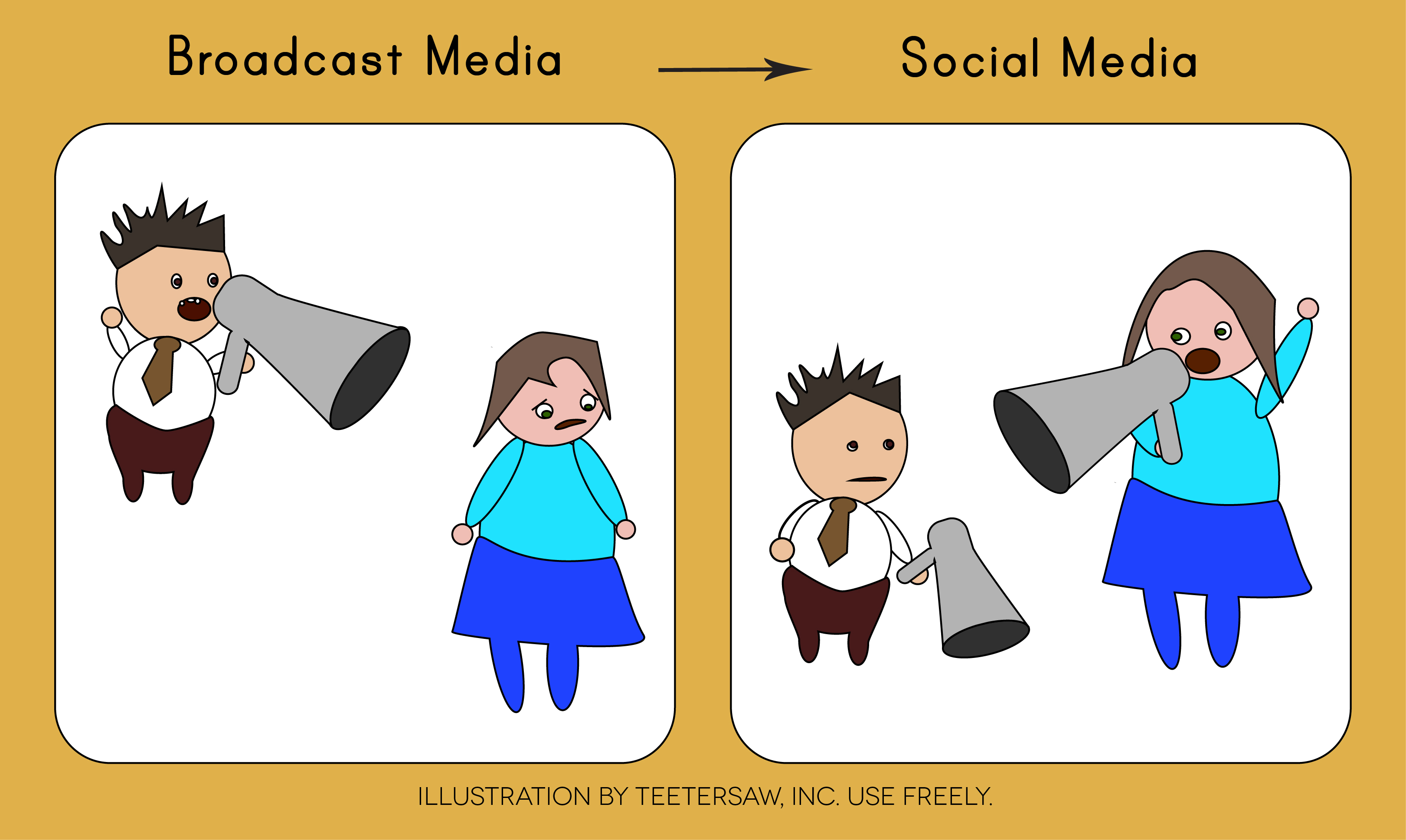
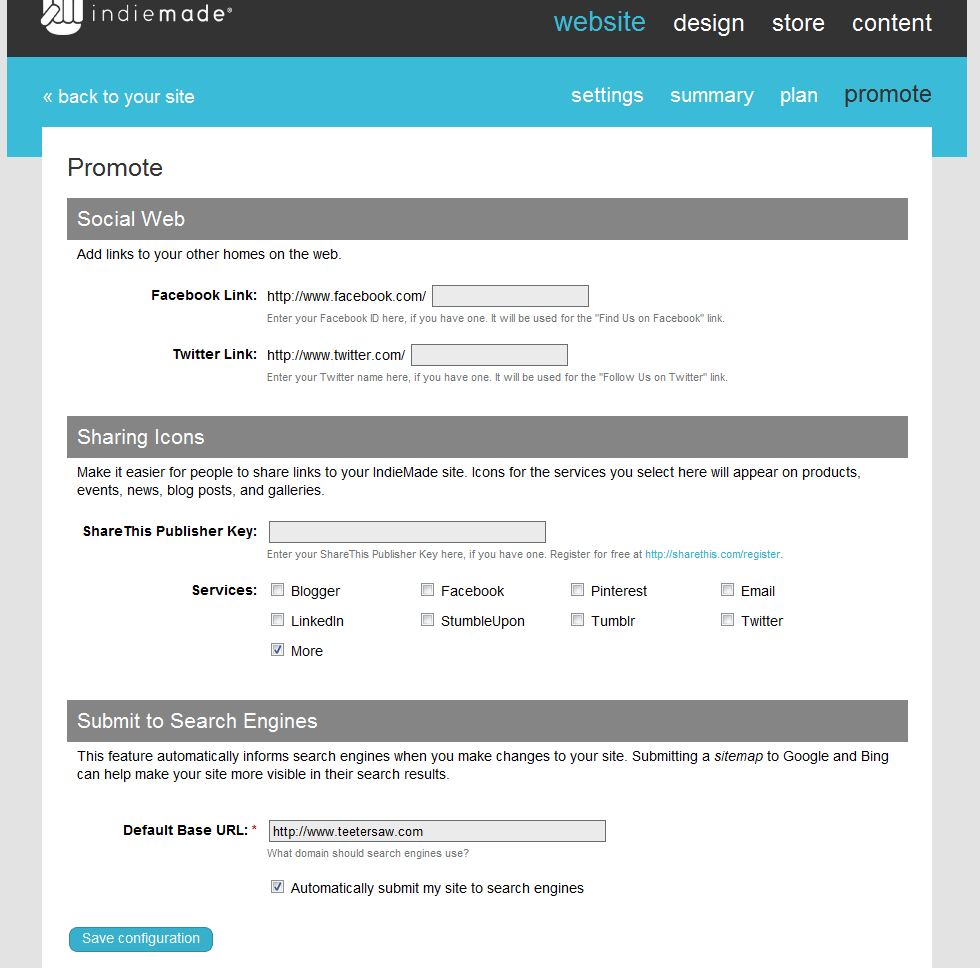
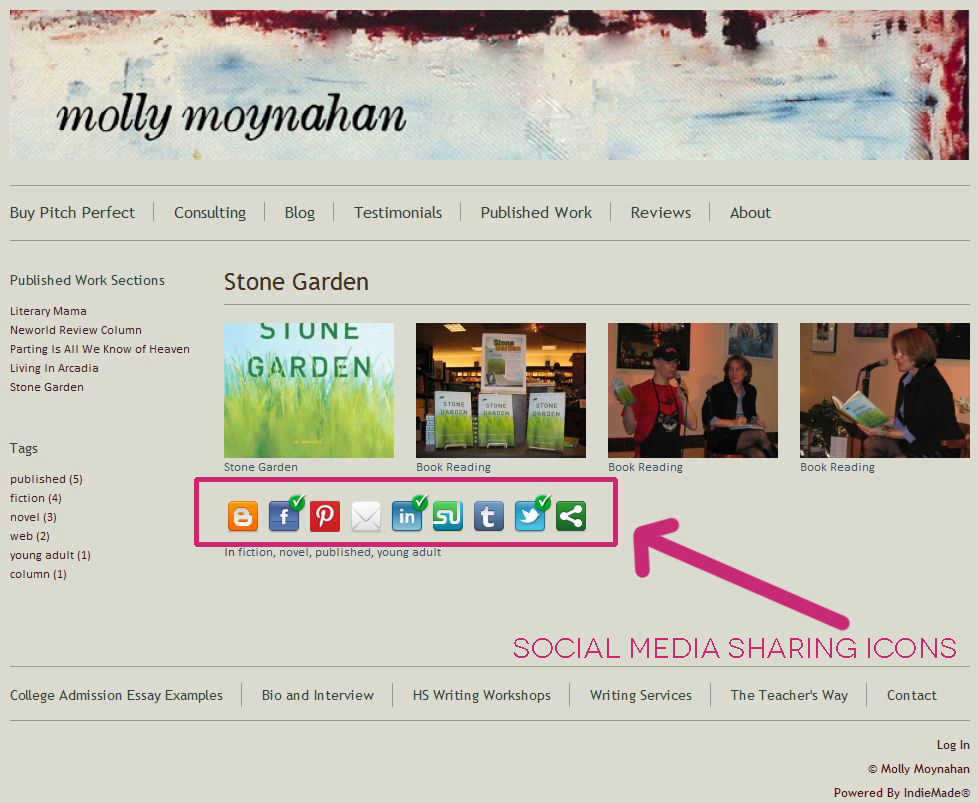
Step 1: Give in. It's here to stay.
(At least for a while until we are running errands with jet packs on our backs.)
We have seen a huge shift in media. Guess what? It’s really good news for indie writers. It's all based on written content. Even pictures need written descriptions.
- Social media = democratization of content.
- Evens the playing field.
- Wisdom of crowds.
- No one is a master of social media - social media hasn't been around long enough. The game is always changing and there are a lot of games.
See image #1 "Social Media: It's Bigger Than You Think" graphic by Brian Solis and JESS3 and image #2 Infographic by Teetersaw, Inc.

How To Build an Artist Website
Sign up for our newsletter and get the book How to Build an Artist Website for free!
It is not too late for indie authors to get into the social media game!
Step 2: Define Your Goals
What possible outcome can indie writers get from using social media? Defining your goals will help you figure out the best approach for engagement online.
- Customer acquisition?
- Customer communication?
- Break into a new type of writing field?
- Learn stuff? Sell stuff?
- Develop a following? To what end?
Step 3: Connect and Listen
If you haven't done so, establish personal profiles on the biggies:
- Facebook: personal and professional uses, especially for indie entrepreneurs.
- Twitter: mostly professional, great for sharing links and thoughts with business contacts.
- LinkedIn: great for "company men," your corporate clients will be there — but profile pages are not geared to the needs of entrepreneurs.
Indie authors can explore the many other social media like community sites, forums and other specialized social networks, when they are ready.
- Connect with everyone you know. Look at their connections.
- Find your current customers and peers.
- Identify experts and influencers.
- Learn the tool and listen.
- Establish a business page on Facebook if applicable. Facebook favors personal profiles over business "fan" pages in their algorithm.
Step 4: Find the opportunity
When "listening" to what's being said online, indie writers will begin to see gaps in the conversation. What's not being said? What perspective are folks missing?
- What needs are not being served?
- Where are the gaps in the knowledge being shared?
- How can indie authors bring value to the conversation?
- How is my voice different from the rest?
- What other kinds of customers need my expertise?
Step 5: Create your brand and get a REAL website
This is a biggie. Indie writers who are in business for themselves need their own website on their own domain name, period.
- Create your BRAND – as an indie writer, it is all about you and your voice.
- Your website should be your brand’s hub.
- It is no longer cost prohibitive.
- All content you share on social networks should start and end on your website.
- A blog is the best “container” for written content on a website.
- Be sure to work with a system that has built in social sharing – anyone visiting your site may share it with their network.
See images 3 & 4.
Step 6: Create and publish content on your website
Content will come easily if you have listened for opportunities. Respect the 90/10 rule — turn spell check on, but post before it's perfect. Indie authors often will strive for perfection but in this medium, posting often and consistently is more important. Don't get in your own way.
- Start with researched, informative blog posts (think articles)
- Limit your content no longer than 800 words, (aim for 500- 600 words).
- Don’t be afraid to use images (get permission if they are not yours).
- Post to blog > share link to article on social media > link back to website
- Make it easy for others to share your content by adding social links. See image 3 & 4.
- It should START on your blog and END on your blog.
Step 7: Become an expert.
Really. Develop your expertise in the gaps of information being shared. Go deep and research niche subject areas that answer questions going unanswered in the social conversation.
- Offer a new take on an old topic.
- Become a valuable, regular resource.
- Create more niche content. Create a place for people to find answers.
- Consolidate niche content making it easier for online visitors to stay on your site.
Step 8: Share and engage.
Share YOURSELF, but remember you are in PUBLIC. Personally, I have surrendered my social media profiles to my business. I only have a select group of people on Facebook with whom I share more personal information and photographs.
- Start conversations.
- Ask meaningful questions.
- Find other resources (sourcing).
- Link and share.
- Be interested in your audience.
- Respond personally, let folks know you have seen and read their profiles.
Step 9: Work smart.
You are a force of one. Indie writers cannot be masters of all social media. There are not enough hours in a day. So I recommend these tactics:
- “Systemate,” don’t automate.
- Focus on the most beneficial networks.
- Create an editorial calendar for your blog, post consistently. I use a spreadsheet to capture ideas and create a manageable post schedule.
- Schedule time every day (week) to research and monitor your accounts.
Step 10: Grow.
- Your business through social media.
- The value you bring to people and your clients.
- And deepen your understanding on niche topics.
You will be surprised, really surprised at how much you learn. To learn something, teach it.
Tools I Use - Short List
To read learn and listen:
- Google Reader - aggregates blog feeds
- Google Alerts - alerts you when a specific term is used online - opportunities to join conversation
- Google Ad Words - great application for SEO, but that is another 20 articles. :) Start with this one on IndieMade.
Hootsuite.com for all social platforms - posting and listening
- Bulk upload to twitter.
- Monitoring dashboard.
Bufferapp.com I use this when I am browsing in one sitting and want to share all of my found info, but want to post it intermittently, not all at once. It schedules your posts for you.
Evernote.com For web browsing and research - your collection of articles, links and websites you find.
Rapportive.com to see my contacts through the lens of their social profiles and posts in Gmail.
Gist.com social media listening for your contacts and posting to your channels, still exploring this one.
BigHugeLabs.com for optimizing images for web posting - I use a two image across mosaic.
I hope you will find these tips helpful for indie authors. Please let me know what we need to ADD to this conversation. Where is the opportunity?


